Features
ELUSIVE JUSTICE FOR ASSAM VICTIMS

by Nava Thakuria, World War 4 Report
As most leaders of United Liberation Front of Asom (ULFA) and other banned militant groups of northeast India have now joined in peace talks with the authorities and are bargaining for amnesty from their past misdeeds, families of victilms of the insurgencies express concern about whether they will get justice. ULFA, which chased the dream of an independent nation of Swadhin Asom in what is now the Indian state of Assam, engaged in numerous acts of extortion, kidnapping and even in brutal killings. Journalists and common people sometimes targeted for their critical comments about the rebels.
One notable example is the brutal assassination of journalist Kamala Saikia, an elderly teacher, veteran of India's independence struggle and devotee of Gandhian principles in the town of Sivasagar, who became a commentator on social issues facing his conflicted state. He was taken away by ULFA fighters on the night of August 9, 1991; his body was recovered next morning on a roadside with signs of torture.
He was among 20 journalists, commentators and editors of Assam who lost their lives to political killings over the past two decades. Not one perpetrator has been brought to justuice.
DROUGHT AND DISASTER FOR SOMALI HERDERS
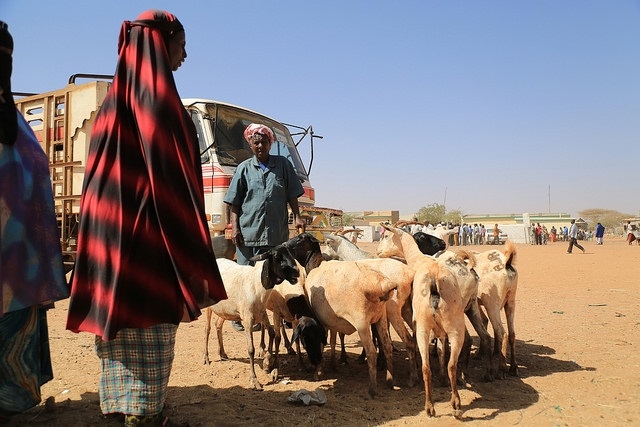
by Mohamed Amin Jibril and Mohamed Omar Mulla, IRIN
HARGEISA/GAROWE — Two consecutive seasons of drought across northern Somalia are driving tens of thousands of pastoralists into hunger and debt.
Abdilahi Mohamed had 20 cattle in August. Only five now survive. He herded his animals 250 kilometers—from his home in Faraweyne to Banka Geriyaad, northwest of Hargeisa, capital of Somaliland region—in the hope that the Hays rainy season (December to February) had generated enough fresh pasture there.
"But before I got there people had already moved in and finished it all," he told IRIN.
It's a similar situation in the autonomous state of Puntland, to the east. Mohamoud Ahmed told IRIN by phone from Sanag region, one of the hardest-hit areas, that he had "lost a number" of his herd.
"My entire family is now in a critical situation: no water, no food, no nothing. Young ones and the elderly are suffering a lot. Sometimes I buy a drum of water for $120—when I can afford it."
IRAN'S 'MODERATE' HANGMAN
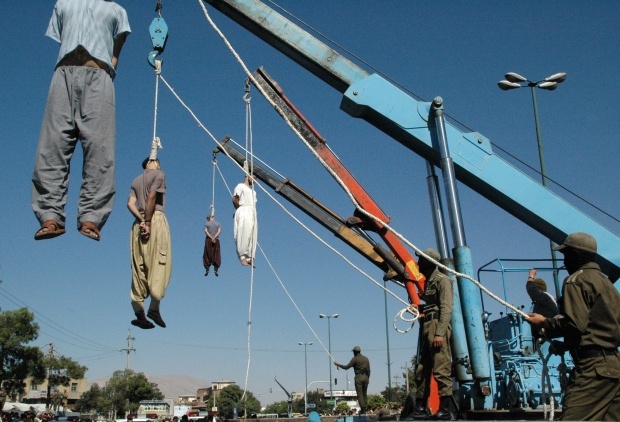
by Rahim Hamid, Middle East Eye
The appalling human rights situation in Iran has not improved since Hassan Rouhani—touted in some circles in the West as a "moderate" and a "reformer"—became president of the Islamic Republic in 2013. Since taking office, more than 2,000 people have been hanged under Rouhani's watch, the biggest scale of executions in the past 25 years, adding to the black pages of the regime's history of human rights violations since the revolution of 1979.
The execution spree in the first half of 2015 was not missed by the human rights group Amnesty International, which noted that "death sentences in Iran are particularly disturbing because they are invariably imposed by courts that are completely lacking in independence and impartiality." The rights group added: "They are imposed either for vaguely worded or overly broad offences, or acts that should not be criminalised at all, let alone attract the death penalty. Trials in Iran are deeply flawed, detainees are often denied access to lawyers in the investigative stage, and there are inadequate procedures for appeal, pardon and commutation."
As a result, Iran became the top country committing executions per capita—again under Rouhani's watch.
RELIEF FOR LIBYA'S 'CHINESE CAMP'?
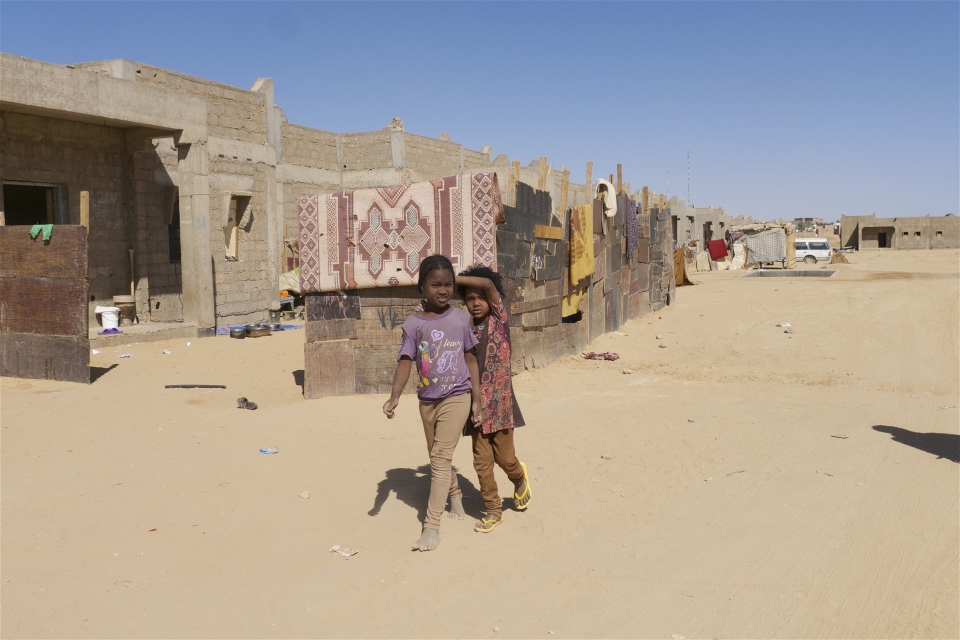
by Tom Westcott, IRIN
GHAT — A peace deal signed last week in Qatar by warring tribes from the Saharan town of Ubari may bring some hope for displaced and marginalized people in Libya's desert south, including those holed up in a partially-built construction project known locally as the "Chinese Camp." We reported in August on the desperate situation in Ubari, a town of more than 30,000 people where civilians had to be on constant alert for street clashes and sniper fire, and where the wounded often died of their injuries because of the lack of medical supplies and assistance.
The fighting is predominantly between militias from two indigenous Saharan tribes, the Tuareg and the Tebu, which have taken opposing sides as Libya has descended into a complex web of conflicts after the ousting of long-time ruler Moammar Qaddafi. The Tuareg are aligned with the Tripoli government, installed 16 months ago as a rival to the internationally recognized government in eastern Libya, which has the support of the Tebu.
Many of those fleeing the fighting have had little choice but to seek refuge more than 300 kilometers to the southwest in Ghat, a predominantly Tuareg town. Some 600 families now occupy half-built homes on the outskirts of Ghat in an unfinished housing project abandoned by a Chinese construction company at the start of the 2011 uprising.
While many were displaced by fighting between the Tuareg and the Tebu, there are also migrants from neighbouring countries. Children play with abandoned cars in the dust, rather than spend time inside squalid two-roomed houses, where windows are bricked up against the summer sand that blows in from the Sahara and the cold winter nights.
ETHNIC 'DIVIDE AND CONQUER' IN ISRAEL
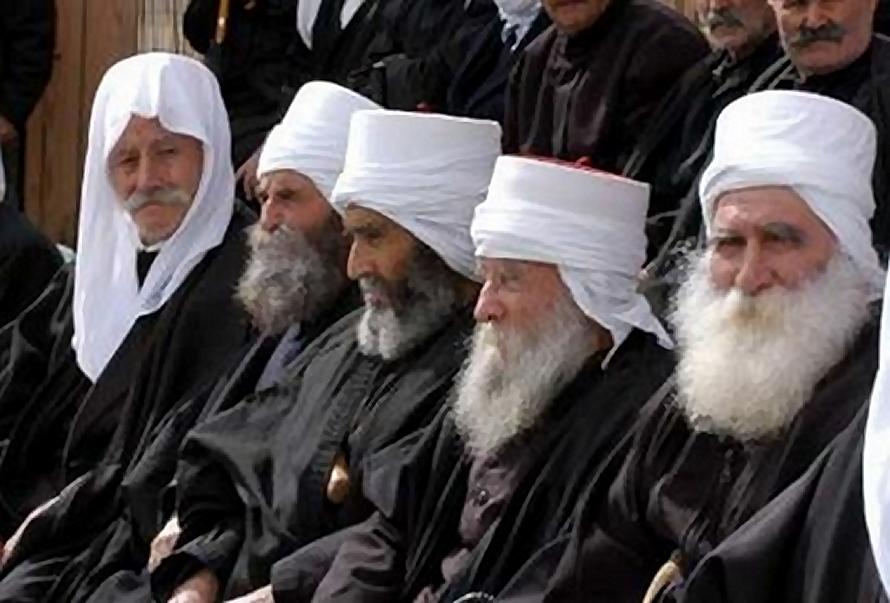
by Chloe Benoist, Ma'an News Agency
BETHLEHEM — A plan approved by Israel's cabinet last week to provide half a billion dollars worth of assistance to Israel's Druze and Circassian minorities has been denounced by leaders of Israel's Palestinian community as a "divide and conquer" tactic. Israeli Prime Minister Benjamin Netanyahu announced the 2 billion shekel ($510 million) multi-year plan "for the development of the Druze and Circassian communities" at the start of the weekly cabinet meeting on Jan. 10. The plans followed the earlier announcement of a 15 billion shekel ($3.8 billion) five-year plan to address the gaps in access to infrastructure and discrepancies in rights between Palestinians with Israeli citizenship and their Jewish counterparts.
While it was not initially clear whether the assistance to the Druze and Circassian communities was included in this larger plan, Netanyahu warned separately that day that the larger plan for the development of other "Arab communities" was dependent on the implementation of a law enforcement plan alongside it. "I want to make it clear that nothing that has been done in various areas—infrastructure, tourism, education, trade, economy—can move forward if we do not address the question of enforcing the laws of the state of Israel in the Arab sector," the prime minister said.
The further security measures proposed by Netanyahu would target Palestinian citizens of Israel—who represent an estimated 20 percent of the Israeli population—but would, critics say, do so unequally.
THE SIEGES IN SYRIA
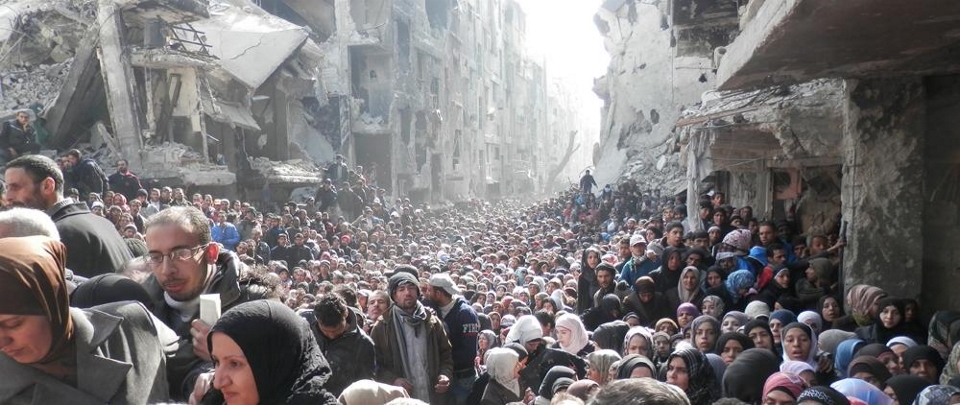
from IRIN
LONDON — At precisely the same time as aid lorries pulled into the besieged Syrian village of Madaya on Jan. 11, too late to save those who had already starved to death, convoys also entered the besieged areas of Fua and Kefraya. The timing was no coincidence. Last week's deal to allow aid into Madaya, which is surrounded by forces loyal to Syrian President Bashar al-Assad, including Hezbollah fighters, was more of a swap by warring parties than a humanitarian gesture: the same militant group inside Madaya surrounds Fua and Kefraya.
That this was the only way the war's belligerents could agree to rescue the estimated 42,000 civilians of Madaya, who had reportedly been eating spiced water and tree leaves, points to the complications of delivering aid through a blockade.
And the small village on the Lebanese border is not an isolated case. In the fifth year of Syria's war, depending on who you ask, there are anywhere between 393,700 and 2 million people living under siege and in desperate need of help.
As aid trucks brought relief to Madaya, IRIN went looking for information on sieges, and found out that even the simplest questions don't have easy answers.
'THE POWER TO DEFEND OUR TERRITORY'
Indigenous Communities Win Consulation Law in Guatemala
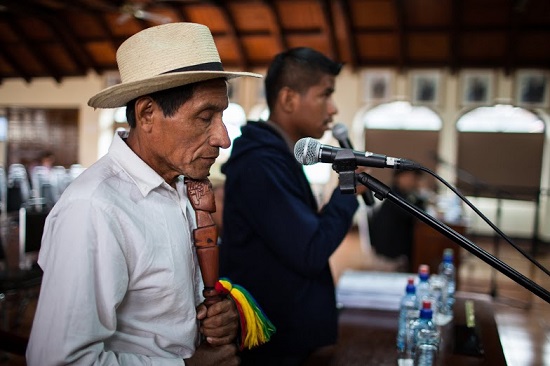
by Jeff Abbott, Upside Down World
On September 10, the Guatemalan Constitutional Court ordered the suspension of licenses for the construction of the Vega I and Vega II hydroelectric projects in the Ixil territory. The court made the order following the failure of the company to consult the indigenous communities prior to the issuing of permits for the project owned by the Spanish firm Hidroxil, S.A.
The Constitutional Court ordered the Ministry of Energy and Mining to "take the necessary measures to ensure that the consultation of affected and interested indigenous communities is practiced in accordance with applicable international standards, concerning the installation of hydroelectric power plant La Vega I." The court order stated that such consultation "should be seen as an intercultural dialogue in good faith, in which consensus and mutual accommodation of the legitimate interests of the parties is sought."
The two hydro projects were initially approved in 2011, and would have affected the Xamalá and Sumalá rivers in the municipality of Santa Maria Nebaj. Indigenous authorities had first issued filed the cases against the hydro projects in 2012. The authority had requested that the court annul Agreement 99-2011, which was signed during the administration of Álvaro Colom in 2011, and allowed the Spanish firm to construct the Vega project. The community leaders were troubled by the firm's lack of respect for the community's rights upon arrival.
RAQQA CIVILIANS ON THE LINE
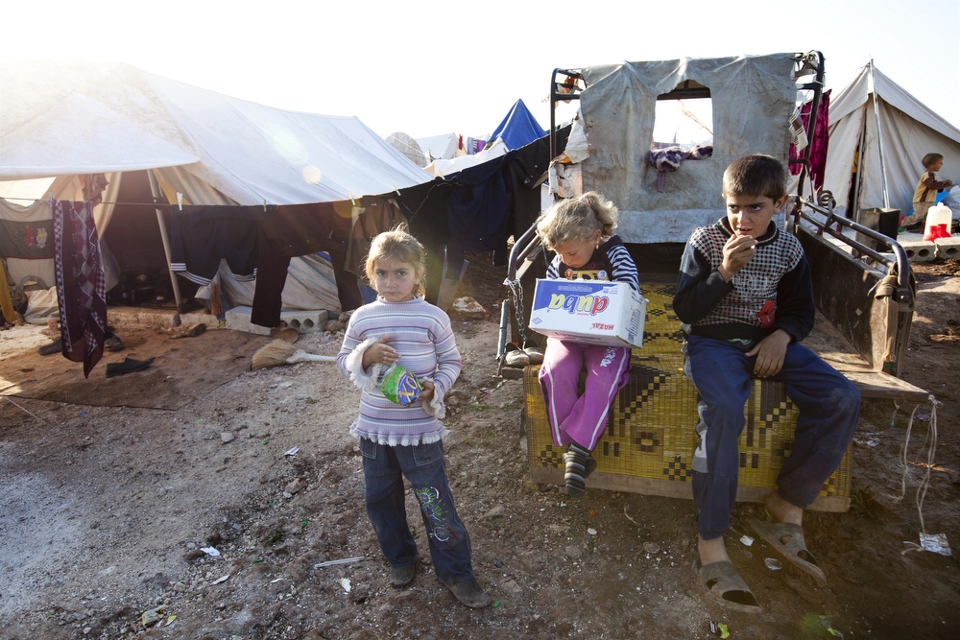
by Annie Slemrod, IRIN
JERUSALEM — The northeast Syrian city of Raqqa is a crucial power centre for the so-called Islamic State, important enough that many call it the group's "capital" and France chose to bomb it repeatedly as its rejoinder to the Paris attacks. Speaking Nov. 16, the day after French warplanes struck the city, President François Hollande promised to step up the military campaign against IS and "destroy" the group.
No civilians were reported killed in the overnight strikes but plenty remain in the area. How are they getting by? Precious little information makes it out of IS territory, but this is what we could establish...















Recent Updates
2 days 6 hours ago
3 days 6 hours ago
3 days 6 hours ago
3 days 6 hours ago
5 days 8 hours ago
5 days 8 hours ago
5 days 9 hours ago
6 days 9 hours ago
6 days 10 hours ago
6 days 11 hours ago